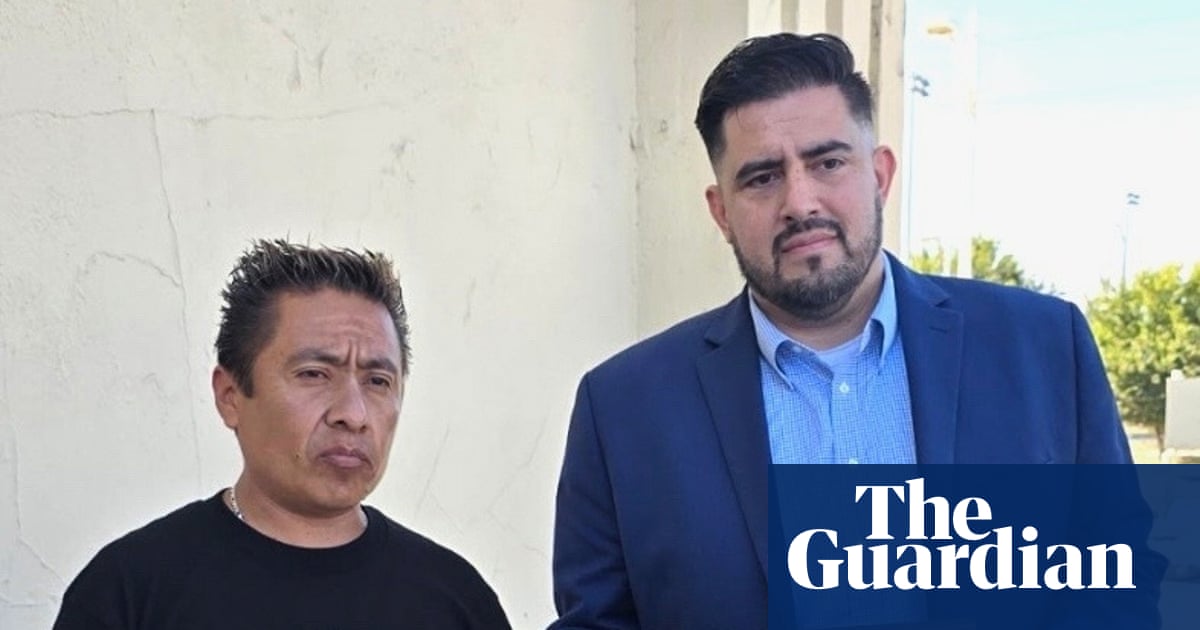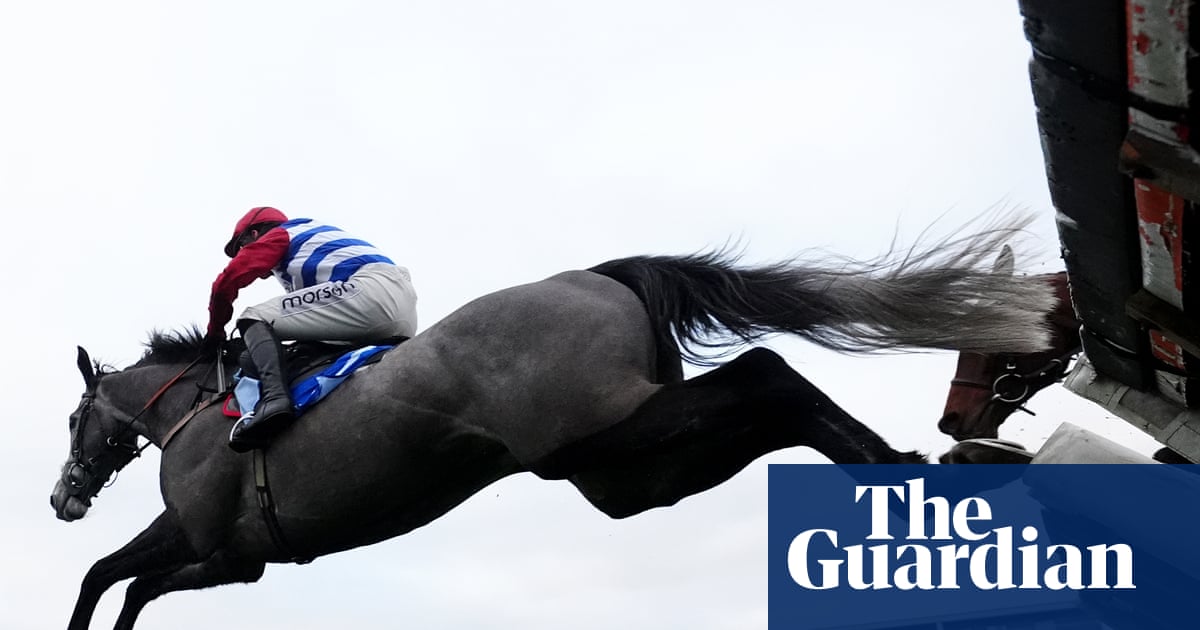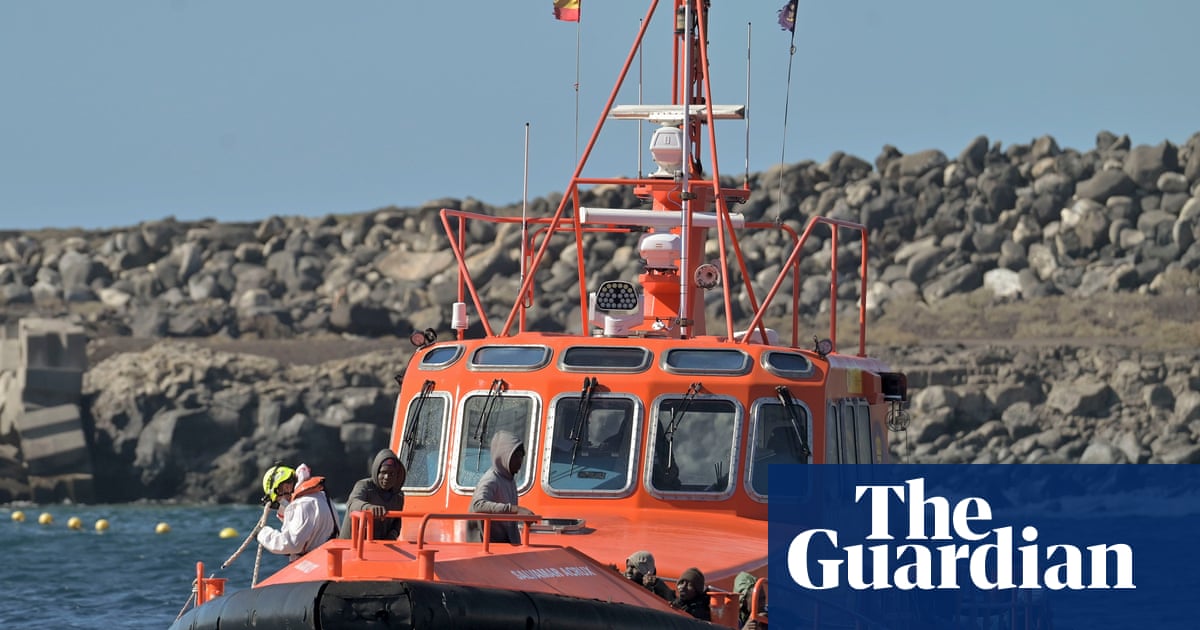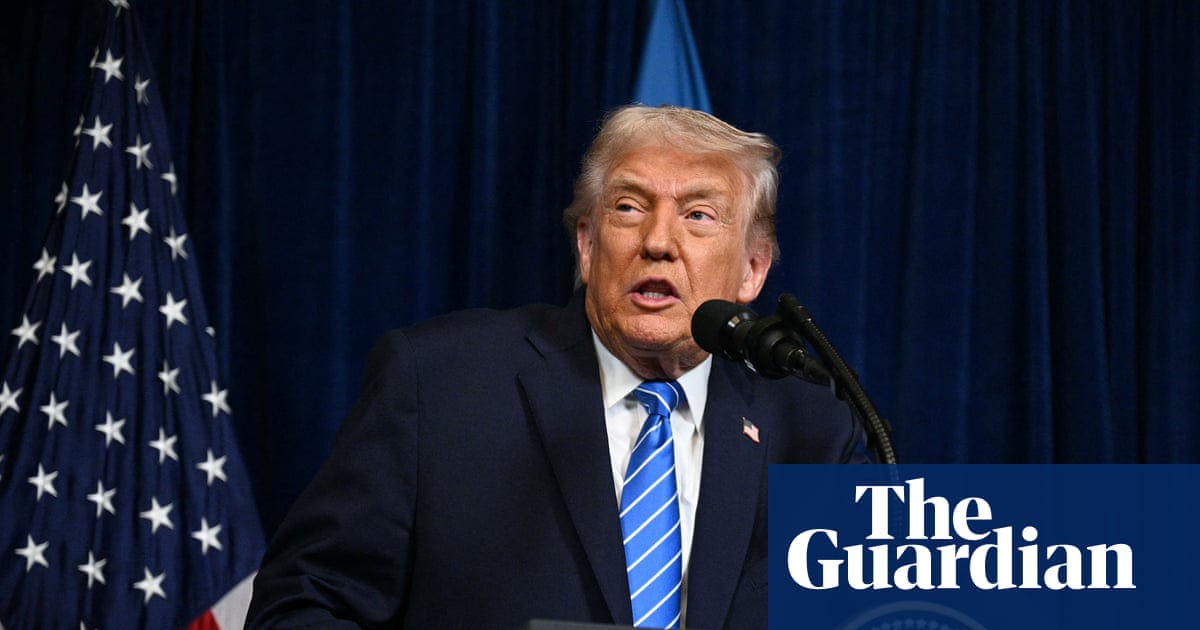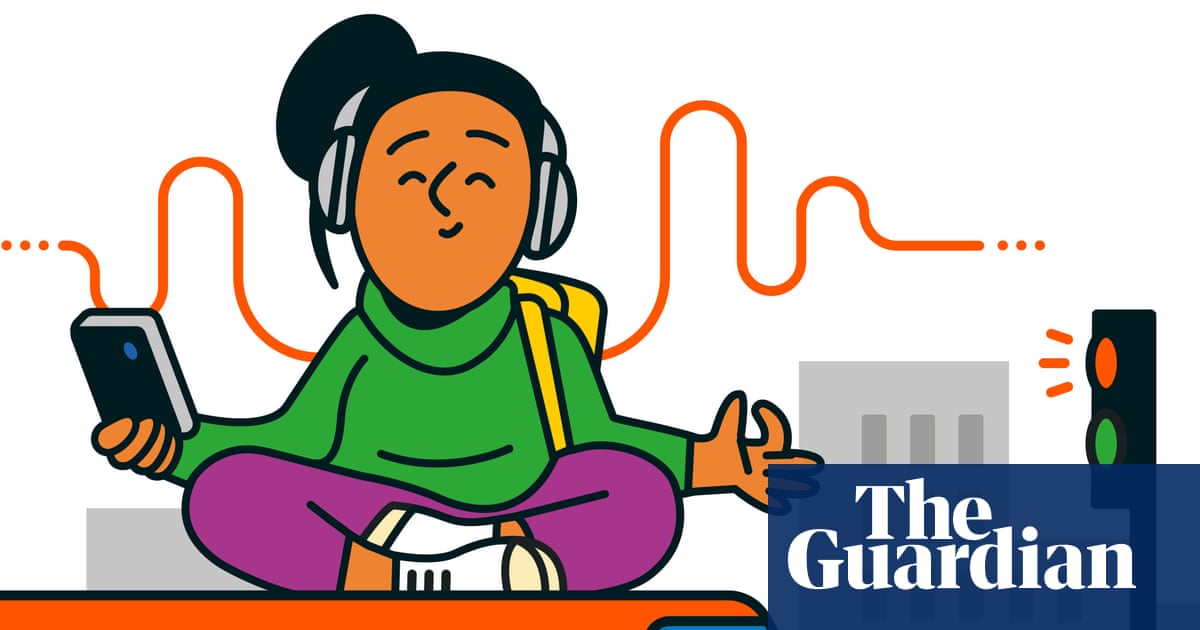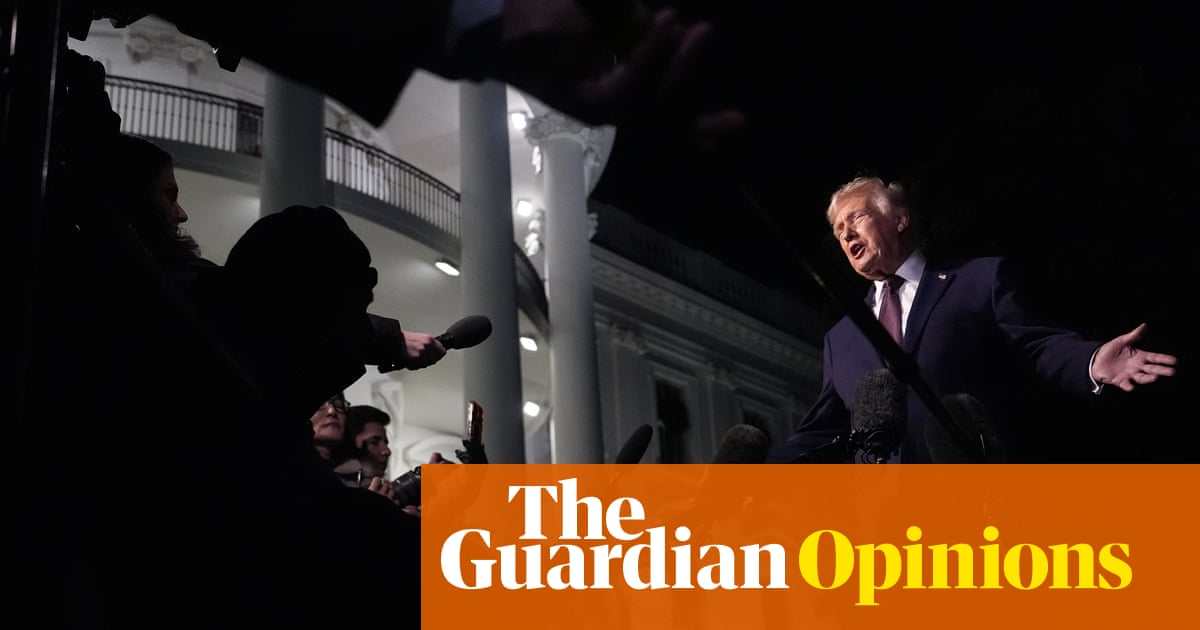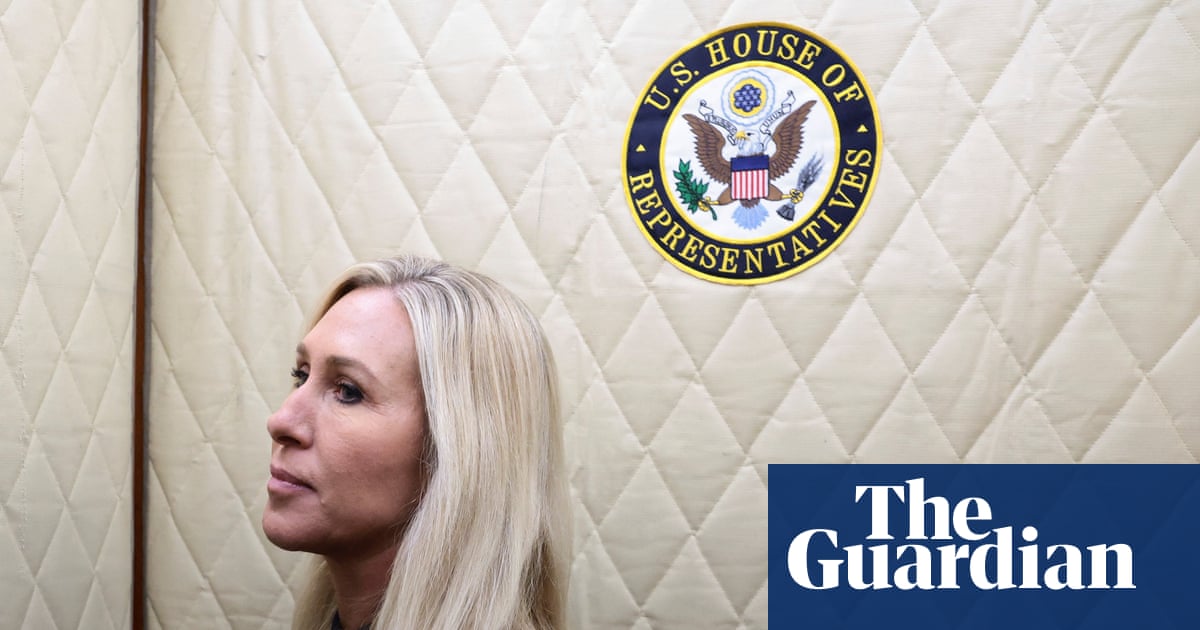Less than three weeks after being dismissed by Fenerbahce, José Mourinho is back in the dugout. The “Special One” has taken over at Benfica, marking his return to his home country more than two decades after his move from Porto to Chelsea. In an unusual twist he has signed a contract to June 2027 with a break clause next summer related to October’s club presidential election. Will this be a fresh start for Mourinho, or another step down in his career?
Hélder Postiga, a former Tottenham forward and one of Mourinho’s key players at Porto, regards the appointment as a win for an entire nation. Postiga, who scored five goals in Porto’s triumphant 2003-04 Uefa Cup campaign, believes the coach’s return will elevate Portuguese football.
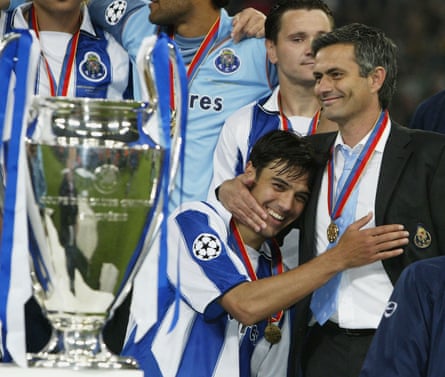
“It will be great for the game here,” he says. “Mourinho is more than a man – he’s a global brand. His presence will spark interest and curiosity. Both Benfica and the league will benefit from his exposure.”
Mourinho returns to Lisbon 25 years after his brief and unsuccessful tenure at Benfica in the 2000-01 season, when he managed 11 games in his first stint as a head coach. He inherits a team whose shock home defeat in their Champions League opener by the Azerbaijani side Qarabag prompted the dismissal of Bruno Lage.
Although Mourinho has not coached in Portugal for 21 years, he has remained closely connected to the country’s football scene. He maintained strong relationships with its clubs and players, and the dream of one day managing the national team has lingered in the background.
When Benfica made the call, Mourinho picked up the phone in Barcelona. He informed the club that the interest was mutual, put an unexpected end to his vacation and got on the next plane to Lisbon to hold talks. The 62-year-old’s insight into the players and tactics has been helped by having faced Benfica three times this season – once in a friendly and twice in Champions League playoff matches.
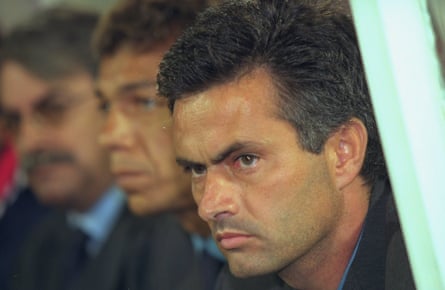
Mourinho’s appointment came as little surprise. When Lage spoke to reporters outside Benfica’s training ground after his sacking, he was careful not to confirm details but admitted Mourinho was the right choice to succeed him and wished his potential successor good luck.
“The most important thing is that he is a man that knows Benfica inside and out,” he said from inside his car, swarmed by an army of journalists. “He played three times against this team and knows it really well. He complimented many times Benfica’s lineup and told me that I was a happy man [compared with him] in regards to the options I had. Certainly, he will be a much happier man [than me], with [Heorhiy] Sudakov and Dodi [Lukébakio] arriving to help out the team.”
For Postiga, Mourinho’s name alone will stir things up in the opening weeks but the hard work that follows will define his tenure. He praises Mourinho’s proven ability to build cohesive, united teams. “Things will have to change,” Postiga says. “His name has impact and Benfica’s squad has quality but the ball needs to enter the goal for things to work.”
Mourinho’s arrival has split opinion among Benfica fans. While many celebrate the return of a world-class coach, others have criticised the president, Rui Costa, for tying the club to a new deal a month before the election.
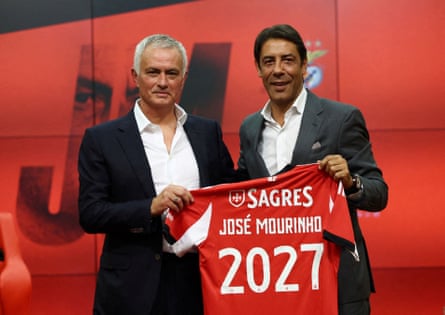
The move ends speculation, at least until the summer, about a possible reunion with Ruben Amorim, a former Benfica player. Manchester United’s head coach remains a fan favourite, and João Noronha Lopes – one of Costa’s main challengers for the presidency – has been associated with the idea of bringing Amorim back. He also promised to pursue Bernardo Silva, pledging to draft a contract for the Manchester City midfielder if elected.
Costa faces three strong opponents in the election, including the former president Luís Filipe Vieira, who resigned in 2021 after being arrested as part of the Operation Red Card investigation into alleged tax fraud and money laundering. Vieira denies any wrongdoing. With the club in a turbulent political period, victories under Mourinho will be critical to stabilising the ship.
The first big domestic test is looming – and it’s personal. On 5 October Benfica travel to Estádio do Dragão to face Porto, setting the stage for Mourinho’s dramatic return to the club where his legend was born.
Beyond chasing victories, Mourinho has much to prove. Since 2017 he has delivered one trophy – the Conference League with Roma – and he faces the ultimate question: does he still have the edge to be world class, or is the aura of the Special One fading into the past?

 3 months ago
50
3 months ago
50

